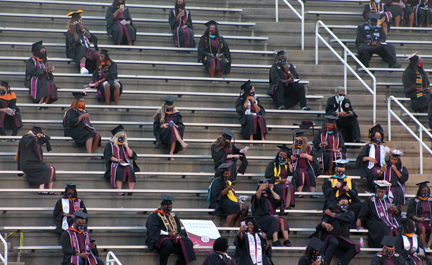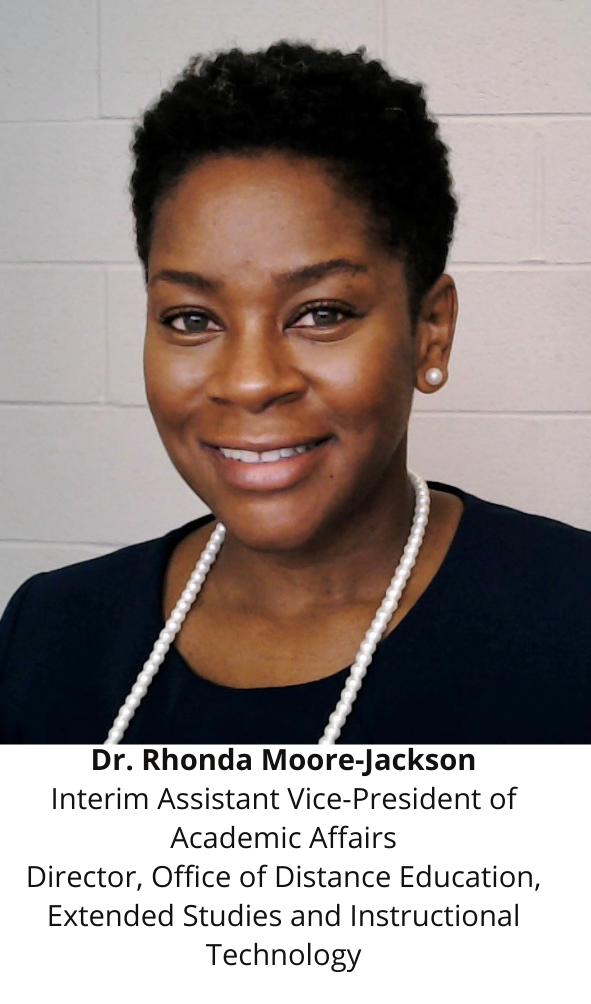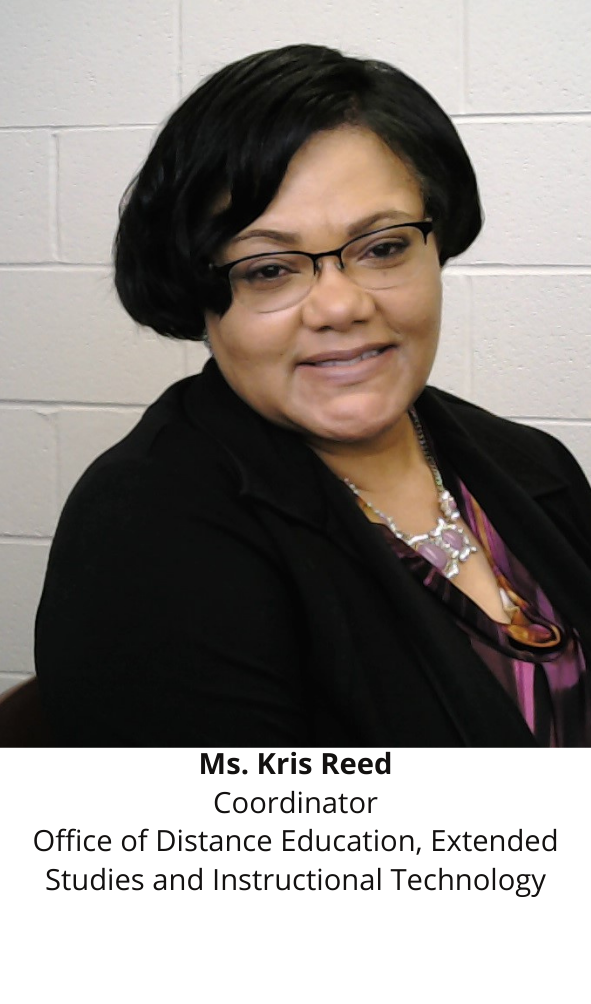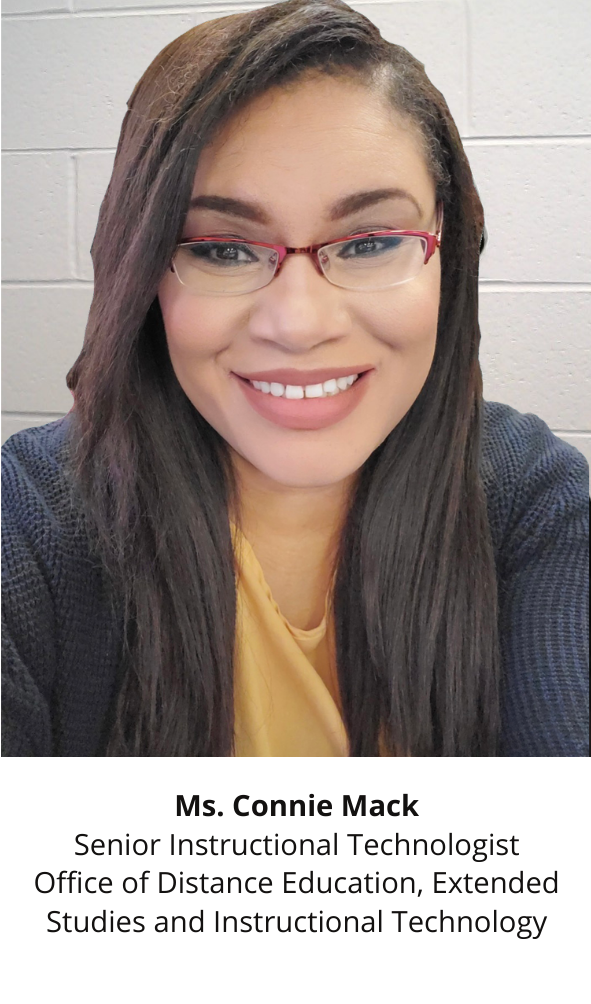AAMU: Innovating for COVID-19 and Beyond

Pivoting to Education's Future
The emergence of the COVID-19 pandemic and its subsequent restrictions presented unique challenges and opportunities for post-secondary institutions. Alabama A&M University’s Divisions of Academic Affairs and Research, made a pivot to e-Learning, remote advising, and revised research approaches in both a swift and responsive manner, in consideration of the needs of students and the institution at large.
 These efforts, while administered by the Office of the Provost and Vice-President
for Academic Affairs and Research, were primarily led by Dr. Rhonda Moore-Jackson
and her office/staff—both the immediate pivot and implementation of longer term and sustained
e-based initiatives.
These efforts, while administered by the Office of the Provost and Vice-President
for Academic Affairs and Research, were primarily led by Dr. Rhonda Moore-Jackson
and her office/staff—both the immediate pivot and implementation of longer term and sustained
e-based initiatives.
Recognizing that adherence to Centers for Disease Control (CDC) guidelines for physical
distancing would require adjustments in course delivery, an Instructional Delivery
Task Force was convened and charged with developing and identifying new instructional
delivery modes for the Fall 2020 semester. The interdivisional composition of this
task force, which included representatives from Academic Affairs (Drs. John Jones, Pamela Arrington, Josh Herring, Charlotte Teague and Rhonda Moore-Jackson,
and Kris Reed and Connie Mack); Student Affairs (Brenda Williams, Dr. Kandace O’Neal and Sharon Baker) and Information  Technology (Dr. Kylie Nash and Jamarcus Allen) resulted in a cohesive effort to modify instructional delivery modes, to meet the
needs of both students and faculty.
Technology (Dr. Kylie Nash and Jamarcus Allen) resulted in a cohesive effort to modify instructional delivery modes, to meet the
needs of both students and faculty.
The University was fortunate to have made investments in e-learning over the past several years, which positioned it for a smooth transition. Since 2014, the Office of Distance Education, Extended Studies, and Instructional Technology (ODEESIT) has facilitated the AAMU Online Instructor Certification program, which prepares faculty for e-Learning instruction.
At the onset of the university’s necessary transition to remote instruction during the Spring 2020 semester, more than 70% of the university’s existing faculty were already certified to teach online. By the end of the summer 2020 semester, more than 97% of the university’s faculty had earned the credential.
“The commitment and compassion of academic faculty and staff, in response to the fluid environment of the last several months, is highly commendable,” noted Dr. Moore-Jackson. “Their efforts ensure that the university’s primary mission of educational access and opportunity is maintained.”
 While the academic division adjusted, so too did the university’s Division for Research. The
active and robust research agenda of the institution required a significant revision
to procedures for both laboratory and fieldwork. Enhanced practices for physical distancing were
implemented to support a safe research environment while ensuring that important academic research could
continue.
While the academic division adjusted, so too did the university’s Division for Research. The
active and robust research agenda of the institution required a significant revision
to procedures for both laboratory and fieldwork. Enhanced practices for physical distancing were
implemented to support a safe research environment while ensuring that important academic research could
continue.
As the institution enters the Spring 2021 semester, the Divisions of Academic Affairs and Research have made efforts to identify instructional technology to support innovative teaching methods. This effort is evident in the more than 45 classrooms that were updated in January 2021, with 60 classrooms slated for technology upgrades by March 2021.
Moreover, the acquisition of interactive display technology and smart web cameras will facilitate a more engaging learning experience for students, regardless of their mode of attendance. Further, the launch of the HyFlex instructional delivery mode for Spring 2021, which enables students to participate in an on-campus course with the option to transition to remote attendance, as needed, provides AAMU students with flexible learning options.
With the University preparing for the months ahead, it is confident in the commitment of the Divisions of Academic Affairs and Research to continue innovative approaches to instruction and research for the “New Normal.”
 Skip to content
Skip to content